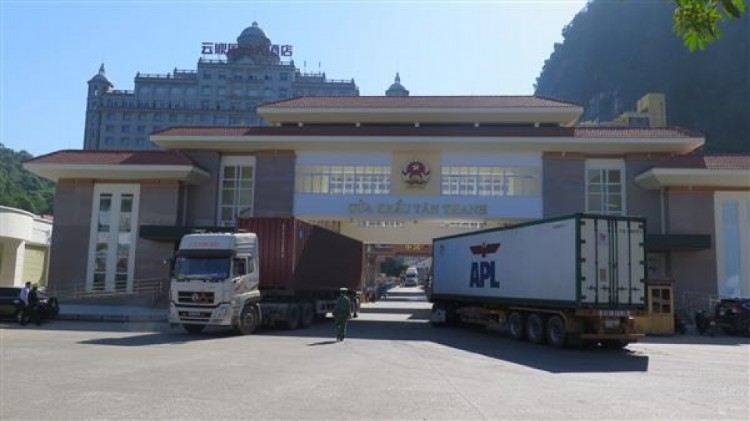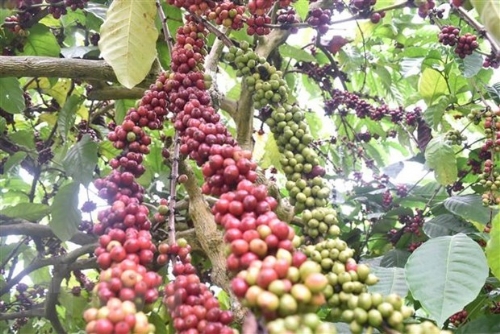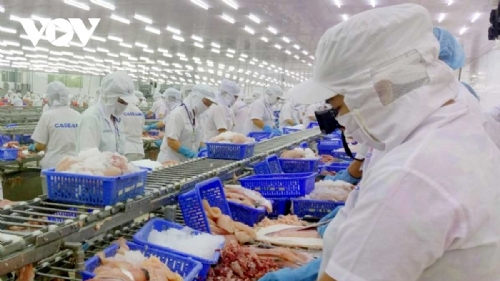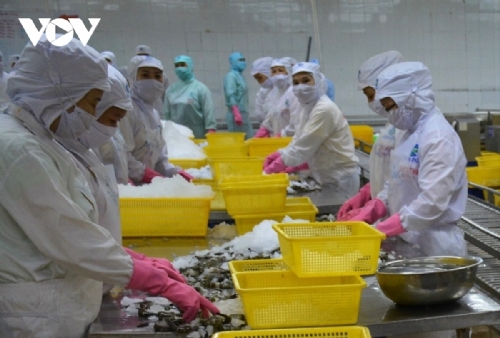Agricultural Product Exporters Need to Grasp and Comply With New Chinese Regulations
Tuesday, January 22, 2019 09:43

From 16th December 2018, China has tightened regulations on management, supervision and quarantine of fishery and agricultural products, especially fresh fruits imported from Vietnam, making export of this product difficult.
Businesses are facing difficulties
According to the regulation, fruits that are not in the list of imports shall not be allowed to carry out Customs declarations, not be approved for quarantine, and are not allowed to import. Therefore, over the past days, fresh fruit exporters have faced difficulties.
Before December 16, 2018, a number of Vietnamese fruit products such as Passion fruit, Pomelo, Water apple, Durian, Mangosteen ... were not allowed to export to China. The obstacles in exporting is that these fruits have not met China’s standards of traceability and quarantine regulations, causing fresh fruits exports across Tan Thanh Border Gate in particular and a number of border gates in the province to significantly decreased. Specifically, from the 16th to 31st of December 2018, there were over 44.2 thousand tons of exported fruits, down 15.7% compared to the same period in 2017.
According to information from Lang Son Quarantine Agency, currently, there are only 8 types of fresh fruits which are allowed to export across the border gates of Lang Son province: Dragon fruit, watermelon, litchi, longan, banana, mango, jackfruit and rambutan. If these fruits meet standards on traceability (including packages, labels, origin certificates and etc), they shall be allowed to carry out Customs procedures.
In fact, many businesses still have not specifically understood the regulations, making congestion of Vietnam’s agricultural products exported to Trung Quoc across Lang Son’s border gates.
Talking with the Customs Newspaper’s reporter, Ms. Nguyen Bich Nguyet, the representative of Tan Thanh Agricultural Products Import Export Company said that over the past time, when China has tightened regulations on quarantine, packages, labels and etc, many cooperatives and traders must return their goods to the transfer border gate. There are lots of goods that have been cleared but have been returned because they do not meet the standards of stamps, labels and packing mode.
The representative of Tan Thanh Customs Branch (Lang Son Customs Department) said that the fresh fruit exporters often buy products from farmers, so most of the exported products have no stamps and labels and packaging. In order to ensure goods in accordance with Chinese regulations and partners, the businesses must actively register with the Industry and Trade Department, Agriculture and Rural Development Department, then print stamps, labels, packages, and packing them as required by the importers. However, not all businesses do that because they must invest in packaging, labels and etc., and that increases costs and time.
Lang Son Customs takes the initiative in seeking solutions
Talking to Customs News’ reporter, Mr. Hoang Khanh Hoa, Director of Lang Son Customs Department said that the Chinese competent authorities have strengthened the management of Vietnam exported agricultural products, affecting and causing the cargo congestion at border gates.
In order to remove arising problems for Vietnam's agricultural products exported to China, Lang Son Customs Department has actively contacted and exchanged information with Chinese authorities to unify the solutions and facilitate Customs clearance. At the working session, Lang Son Customs Department proposed Bang Tuong and Nam Ninh Customs Departments to provide information related to management of agricultural products imported into China; regulations on quarantine and Customs inspection; and solutions to facilitate Vietnam’s agricultural products.
After the exchanging information, Bang Tuong and Nam Ninh Customs Departments said that China has strictly quarantined fishery, agricultural products and livestock feed originating from Vietnam imported into China (goods must be in the list of goods permitted for import into China, shall be allowed to carry out customs declaration).
“In addition, China has also tightly controlled the registration of traceability, quarantine certification as required; checked and compared quarantine certificates of Vietnamese competent authorities; sampled on site to detect harmful objects for shipments imported from Vietnam,” Mr. Hoa said.
At the same time, Lang Son Customs Department has also notified and advised the business community engaged in import and export activities at Huu Nghi, Tan Thanh and other border gates in the province on changes in policies by the Chinese management authorities.
“Lang Son Customs Department has also informed and disseminated to Vietnamese businesses about the congestion of exported goods at the border gates managed by Tan Thanh Customs Department, so that the businesses can understand the changed policies of the Chinese management agencies, and take the initiative in planning goods export, quickly handle procedures for border gate transfer of businesses in accordance with regulations,”- Mr. Hoa emphasized.
In addition, Huu Nghi Border Gate Customs Branch is also propagating and informing Vietnamese businesses and drivers about the application of "Fingerprint software" to control drivers and means of transport at Huu Nghi Border Gate.
By Dao Le /Ngoc Loan (Source: VCN)
Other news
- Vietnam remains world's second biggest coffee exporter(9/16/2022 10:49:37 AM)
- 2022 trade surplus estimated at US$1 billion(8/31/2022 2:45:08 PM)
- Shrimp exports to US, China endures double-digit decrease in July(8/31/2022 2:39:52 PM)
- Global inflation skyrockets as domestic exports start to feel pinch(8/30/2022 4:08:37 PM)
- Exports to the Netherlands edge up 31.6% over seven months(8/30/2022 4:05:24 PM)
- Bangladesh to purchase huge amount of rice from Vietnam(8/30/2022 4:03:18 PM)
- Shrimp exports to US, China endures double-digit decrease in July(8/30/2022 4:01:31 PM)
- Textile - garment exports to grow further this year(8/30/2022 3:48:20 PM)
- Aquatic exports to Belgium surge 74.32% during seven-month period(8/24/2022 3:27:21 PM)
- US, China become largest consumers of Vietnamese pangasius(8/24/2022 3:22:24 PM)






